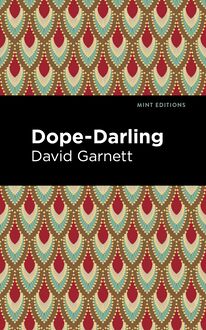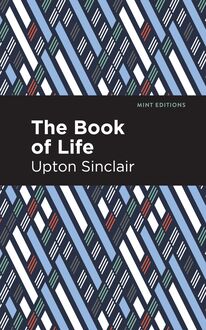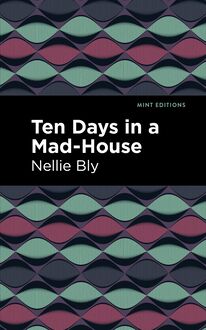-
 Univers
Univers
-
 Ebooks
Ebooks
-
 Livres audio
Livres audio
-
 Presse
Presse
-
 Podcasts
Podcasts
-
 BD
BD
-
 Documents
Documents
-
- Cours
- Révisions
- Ressources pédagogiques
- Sciences de l’éducation
- Manuels scolaires
- Langues
- Travaux de classe
- Annales de BEP
- Etudes supérieures
- Maternelle et primaire
- Fiches de lecture
- Orientation scolaire
- Méthodologie
- Corrigés de devoir
- Annales d’examens et concours
- Annales du bac
- Annales du brevet
- Rapports de stage
La lecture à portée de main
Vous pourrez modifier la taille du texte de cet ouvrage
Découvre YouScribe en t'inscrivant gratuitement
Je m'inscrisDécouvre YouScribe en t'inscrivant gratuitement
Je m'inscrisEn savoir plus
Vous pourrez modifier la taille du texte de cet ouvrage
En savoir plus

Description
Australia Felix (1917) is a novel by Henry Handel Richardson. Based on the life of her parents, Australia Felix is the first in a trilogy of novels later published as The Fortunes of Richard Mahony (1930). The trilogy has earned praise from countless authors and critics for its startling depictions of a man’s decline due to mental illness and the lengths to which his wife must go to care for their young family. “In a shaft on the Gravel Pits, a man had been buried alive. At work in a deep wet hole, he had recklessly omitted to slab the walls of a drive; uprights and tailors yielded under the lateral pressure, and the rotten earth collapsed, bringing down the roof in its train.” Into this dangerous world of mining, Richard Mahony arrives in search of fortune. As the proprietor of Digger’s Emporium, his business depends on the trust of his customers, most of them rugged, hard-drinking gold miners. But the men find it hard to respect Mahony, a teetotaler whose upper-class sensibilities strike them as snobbish at best, insulting at worst. As his store slowly fails, Richard turns his attention to the young Polly Turnham, a servant at the local hotel. When they marry, Polly suggests to her husband that he abandon his business and turn to medicine instead. His practice in Ballarat is a success, allowing them to start a family and live comfortably—for a time. With a beautifully designed cover and professionally typeset manuscript, this edition of Henry Handel Richardson Australia Felix is a classic of Australian literature reimagined for modern readers.
Sujets
Informations
| Publié par | Mint Editions |
| Date de parution | 28 septembre 2021 |
| Nombre de lectures | 0 |
| EAN13 | 9781513293943 |
| Langue | English |
| Poids de l'ouvrage | 1 Mo |
Informations légales : prix de location à la page 0,0500€. Cette information est donnée uniquement à titre indicatif conformément à la législation en vigueur.
Extrait
Australia Felix
Henry Handel Richardson
Australia Felix was first published in 1917.
This edition published by Mint Editions 2021.
ISBN 9781513291093 | E-ISBN 9781513293943
Published by Mint Editions®
minteditionbooks .com
Publishing Director: Jennifer Newens
Design & Production: Rachel Lopez Metzger
Project Manager: Micaela Clark
Typesetting: Westchester Publishing Services
C ONTENTS P ROEM P ART I I II III IV V VI VII VIII IX P ART II I II III IV V VI VII VIII P ART III I II III IV V VI VII VIII IX X XI P ART IV I II III IV V VI VII VIII IX X XI XII
P ROEM
I n a shaft on the Gravel Pits, a man had been buried alive. At work in a deep wet hole, he had recklessly omitted to slab the walls of a drive; uprights and tailors yielded under the lateral pressure, and the rotten earth collapsed, bringing down the roof in its train. The digger fell forward on his face, his ribs jammed across his pick, his arms pinned to his sides, nose and mouth pressed into the sticky mud as into a mask; and over his defenceless body, with a roar that burst his ear-drums, broke stupendous masses of earth.
His mates at the windlass went staggering back from the belch of violently discharged air: it tore the wind-sail to strips, sent stones and gravel flying, loosened planks and props. Their shouts drawing no response, the younger and nimbler of the two—he was a mere boy, for all his amazing growth of beard—put his foot in the bucket and went down on the rope, kicking off the sides of the shaft with his free foot. A group of diggers, gathering round the pit-head, waited for the tug at the rope. It was quick in coming; and the lad was hauled to the surface. No hope: both drives had fallen in; the bottom of the shaft was blocked. The crowd melted with a “Poor Bill—God rest his soul!” or with a silent shrug. Such accidents were not infrequent; each man might thank his stars it was not he who lay cooling down below. And so, since no more washdirt would be raised from this hole, the party that worked it made off for the nearest grog-shop, to wet their throats to the memory of the dead, and to discuss future plans.
All but one: a lean and haggard-looking man of some five and forty, who was known to his comrades as Long Jim. On hearing his mate’s report he had sunk heavily down on a log, and there he sat, a pannikin of raw spirit in his hand, the tears coursing ruts down cheeks scabby with yellow mud, his eyes glassy as marbles with those that had still to fall.
He wept, not for the dead man, but for himself. This accident was the last link in a chain of ill-luck that had been forging ever since he first followed the diggings. He only needed to put his hand to a thing, and luck deserted it. In all the sinkings he had been connected with, he had not once caught his pick in a nugget or got the run of the gutter; the “bottoms” had always proved barren, drives been exhausted without his raising the colour. At the present claim he and his mates had toiled for months, overcoming one difficulty after another. The slabbing, for instance, had cost them infinite trouble; it was roughly done, too, and, even after the pins were in, great flakes of earth would come tumbling down from between the joints, on one occasion nearly knocking silly the man who was below. Then, before they had slabbed a depth of three times nine, they had got into water, and in this they worked for the next sixty feet. They were barely rid of it, when the two adjoining claims were abandoned, and in came the flood again—this time they had to fly for their lives before it, so rapid was its rise. Not the strongest man could stand in this ice-cold water for more than three days on end—the bark slabs stank in it, too, like the skins in a tanner’s yard—and they had been forced to quit work till it subsided. He and another man had gone to the hills, to hew trees for more slabs; the rest to the grog-shop. From there, when it was feasible to make a fresh start, they had to be dragged, some blind drunk, the rest blind stupid from their booze. That had been the hardest job of any: keeping the party together. They had only been eight in all—a hand-to-mouth number for a deep wet hole. Then, one had died of dysentery, contracted from working constantly in water up to his middle; another had been nabbed in a manhunt and clapped into the “logs.” And finally, but a day or two back, the three men who completed the nightshift had deserted for a new “rush” to the Avoca. Now, his pal had gone, too. There was nothing left for him, Long Jim, to do, but to take his dish and turn fossicker; or even to aim no higher than washing over the tailings rejected by the fossicker.
At the thought his tears flowed anew. He cursed the day on which he had first set foot on Ballarat.
“It’s ’ell for white men—’ell, that’s what it is!”
“’Ere, ’ave another drink, matey, and fergit yer bloody troubles.”
His re-filled pannikin drained, he grew warmer round the heart; and sang the praises of his former life. He had been a lamplighter in the old country, and for many years had known no more arduous task than that of tramping round certain streets three times daily, ladder on shoulder, bitch at heel, to attend the little flames that helped to dispel the London dark. And he might have jogged on at this up to three score years and ten, had he never lent an ear to the tales that were being told of a wonderful country, where, for the mere act of stooping, and with your naked hand, you could pick up a fortune from the ground. Might the rogues who had spread these lies be damned to all eternity! Then, he had swallowed them only too willingly; and, leaving the old woman wringing her hands, had taken every farthing of his savings and set sail for Australia. That was close on three years ago. For all he knew, his wife might be dead and buried by this time; or sitting in the almshouse. She could not write, and only in the early days had an occasional newspaper reached him, on which, alongside the Queen’s head, she had put the mark they had agreed on, to show that she was still alive. He would probably never see her again, but would end his days where he was. Well, they wouldn’t be many; this was not a place that made old bones. And, as he sat, worked on by grief and liquor, he was seized by a desperate homesickness for the old country. Why had he ever been fool enough to leave it? He shut his eyes, and all the well-known sights and sounds of the familiar streets came back to him. He saw himself on his rounds of a winter’s afternoon, when each lamp had a halo in the foggy air; heard the pit-pat of his four-footer behind him, the bump of the ladder against the prong of the lamp-post. His friend the policeman’s glazed stovepipe shone out at the corner; from the distance came the tinkle of the muffin-man’s bell, the cries of the buy-a-brooms. He remembered the glowing charcoal in the stoves of the chestnut and potato sellers; the appetising smell of the cooked-fish shops; the fragrant steam of the hot, dark coffee at the twopenny stall, when he had turned shivering out of bed; he sighed for the lights and jollity of the “Hare and Hounds” on a Saturday night. He would never see anything of the kind again. No; here, under bare blue skies, out of which the sun frizzled you alive; here, where it couldn’t rain without at once being a flood; where the very winds blew contrarily, hot from the north and bitter-chill from the south; where, no matter how great the heat by day, the night would as likely as not be nipping cold: here he was doomed to end his life, and to end it, for all the yellow sunshine, more hopelessly knotted and gnarled with rheumatism than if, dawn after dawn, he had gone out in a cutting north-easter, or groped his way through the grey fog-mists sent up by grey Thames.
Thus he sat and brooded, all the hatred of the unwilling exile for the land that gives him house-room burning in his breast.
Who the man was, who now lay deep in a grave that fitted him as a glove fits the hand, careless of the pass to which he had brought his mate; who this really was, Long Jim knew no more than the rest. Young Bill had never spoken out. They had chummed together on the seventy-odd-mile tramp from Melbourne; had boiled a common billy and slept side by side in rain-soaked blankets, under the scanty hair of a she-oak. That was in the days of the first great stampede to the goldfields, when the embryo seaports were as empty as though they were plague-ridden, and every man who had the use of his legs was on the wide bush-track, bound for the north. It was better to be two than one in this medley of bullock-teams, lorries, carts and pack-horses, of dog-teams, wheelbarrows and swagmen, where the air rang with oaths, shouts and hammering hoofs, with whip-cracking and bullock-prodding; in this hurly-burly of thieves, bushrangers and foreigners, of drunken convicts and deserting sailors, of slit-eyed Chinese and apt-handed Lascars, of expirees and ticket-of-leave men, of Jews, Turks and other infidels. Long Jim, himself stunned by it all: by the pother of landing and of finding a roof to cover him; by the ruinous price of bare necessaries; by the length of this unheard-of walk that lay before his town-bred feet: Long Jim had gladly accepted the young man’s company on the road. Originally, for no more than this; at heart he distrusted Young Bill, because of his fine-gentleman airs, and intended shaking the lad off as soon as they reached the diggings. There, a man must, for safety’s sake, be alone, when he stooped to pick up his fortune. But at first sight of the strange, wild scene that met his eyes he hastily changed his mind. And so the two of them had stuck together; and he had never had cause to regret it. For all his lily-white hands and finical speech Young Bill had worked like a nigger, standing by his mate through the latter’s disasters; had worked till the ladyish hands were horny with warts and c
-
 Univers
Univers
-
 Ebooks
Ebooks
-
 Livres audio
Livres audio
-
 Presse
Presse
-
 Podcasts
Podcasts
-
 BD
BD
-
 Documents
Documents
-
Jeunesse
-
Littérature
-
Ressources professionnelles
-
Santé et bien-être
-
Savoirs
-
Education
-
Loisirs et hobbies
-
Art, musique et cinéma
-
Actualité et débat de société
-
Jeunesse
-
Littérature
-
Ressources professionnelles
-
Santé et bien-être
-
Savoirs
-
Education
-
Loisirs et hobbies
-
Art, musique et cinéma
-
Actualité et débat de société
-
Actualités
-
Lifestyle
-
Presse jeunesse
-
Presse professionnelle
-
Pratique
-
Presse sportive
-
Presse internationale
-
Culture & Médias
-
Action et Aventures
-
Science-fiction et Fantasy
-
Société
-
Jeunesse
-
Littérature
-
Ressources professionnelles
-
Santé et bien-être
-
Savoirs
-
Education
-
Loisirs et hobbies
-
Art, musique et cinéma
-
Actualité et débat de société
- Cours
- Révisions
- Ressources pédagogiques
- Sciences de l’éducation
- Manuels scolaires
- Langues
- Travaux de classe
- Annales de BEP
- Etudes supérieures
- Maternelle et primaire
- Fiches de lecture
- Orientation scolaire
- Méthodologie
- Corrigés de devoir
- Annales d’examens et concours
- Annales du bac
- Annales du brevet
- Rapports de stage













